The William G. Bowen Series47
The William G. Bowen Series celebrates the transformative contributions of the late William Bowen to Princeton University Press and the study of higher education. A former president of Princeton University and the Andrew W. Mellon Foundation, Bowen was a staunch supporter of the Press and one of its most important authors. Including outstanding works of scholarship in the economics, history, sociology, and politics of higher education, this series honors his singular and wide-ranging achievements.
-
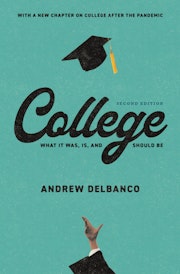
The strengths and failures of the American college, and why liberal education still matters
-
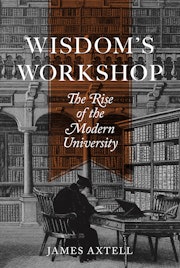
An essential history of the modern research university
-
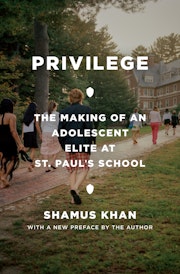
An inside look at how one of the country’s most elite private schools prepares its students for success
-
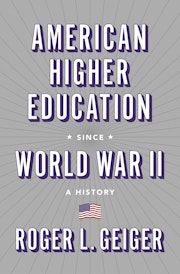
A masterful history of the postwar transformation of American higher education
-
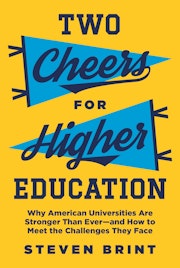
A leading expert challenges the prevailing gloomy outlook on higher education with solid evidence of its successes
-
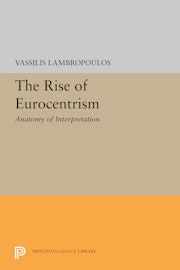
In the controversy over political correctness, the canon, and the curriculum, the role of Western tradition in a post-modern world is often debated. To clarify what is at stake, Vassilis Lambropoulos traces the ideology of European...
-
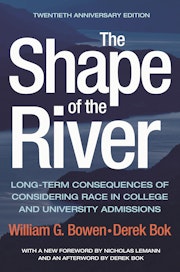
The landmark New York Times bestseller that demonstrates the benefits of race-conscious admissions in higher education
-
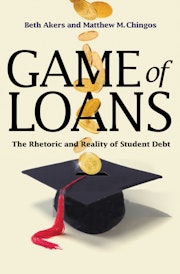
Why fears about a looming student loan crisis are unfounded—and how they obscure what's really wrong with student lending
-
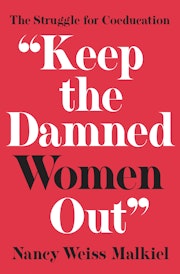
A groundbreaking history of how elite colleges and universities in America and Britain finally went coed
-
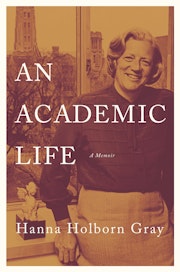
A compelling memoir by the first woman president of a major American university
-

Why a strong mission and inspired leadership are vital to the success of America’s colleges and universities
-
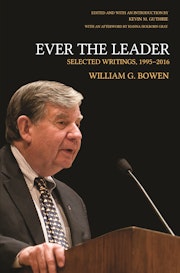
Ever the Leader gathers together selected speeches and writings from one of the great scholars and commentators of higher education. William G. Bowen’s career at Princeton University—from economics professor to provost to a...
-
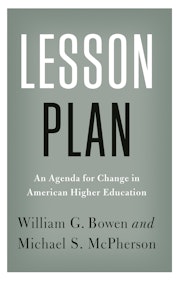
Why and how American colleges and universities need to change in order to meet the nation's pressing needs
-
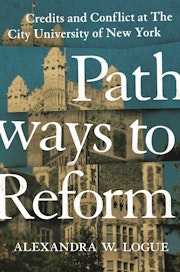
A personal account of the implementation of a controversial credit transfer program at the nation's third-largest university
-
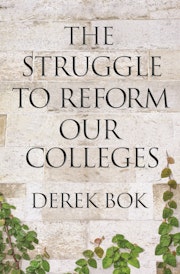
Why efforts to improve American higher educational attainment haven't worked, and where to go from here
-
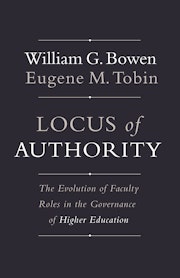
Why colleges and universities should change their governance systems—and what could happen if they don't
-
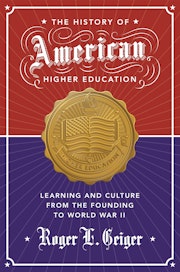
An authoritative one-volume history of the origins and development of American higher education
-
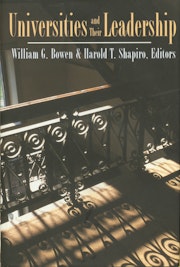
On the occasion of the 250th anniversary of Princeton University, leading educators and commentators participated in a symposium jointly sponsored by Princeton and The Andrew W. Mellon Foundation. Universities and Their Leadership is a...
-
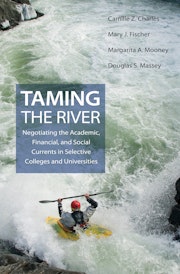
Building on their important findings in The Source of the River, the authors now probe even more deeply into minority underachievement at the college level. Taming the River examines the academic and social dynamics of different ethnic...
-

A prehistory of today's humanities, from ancient Greece to the early twentieth century
-
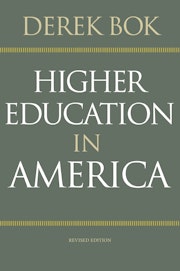
A sweeping assessment of the state of higher education today from former Harvard president Derek Bok
-
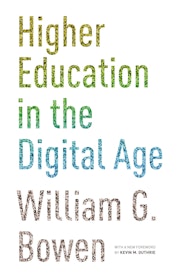
How online learning could help control the exploding cost of higher education
-
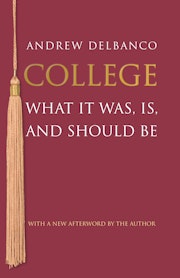
The strengths and failures of the American college, and why liberal education still matters
-
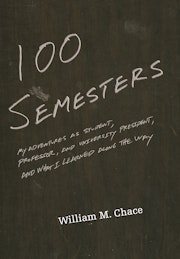
In One Hundred Semesters, William Chace mixes incisive analysis with memoir to create an illuminating picture of the evolution of American higher education over the past half century. Chace follows his own journey from undergraduate...
-
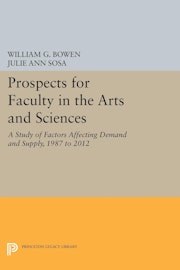
This thought-provoking study of academic job markets over the next quarter century uses rigorous analysis to project substantial excess demand for faculty starting in the 1997-2002 period. Particularly severe imbalances are projected in...
-
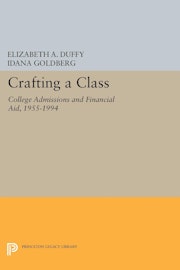
Admissions and financial aid policies at liberal arts colleges have changed dramatically since 1955. Through the 1950s, most colleges in the United States enrolled fewer than 1000 students, nearly all of whom were white. Few colleges...
-
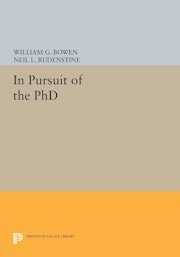
What percentage of graduate students entering PhD programs in the arts and sciences at leading universities actually complete their studies? How do completion rates vary by field of study, scale of graduate program, and type of...
-
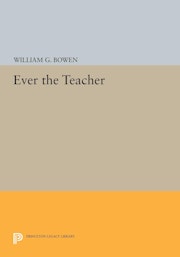
In one of his commencement talks as President of Princeton University, William G. Bowen called upon the assembled graduates to find ways, in their lives, to blend "the powers of the mind and the promptings of the heart."
This collection... -
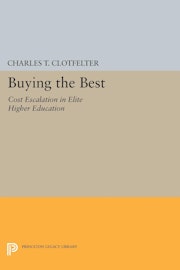
Since the early 1980s, the rapidly increasing cost of college, together with what many see as inadequate attention to teaching, has elicited a barrage of protest. Buying the Best looks at the realities behind these criticisms--at the...
-
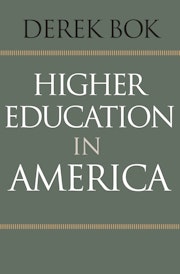
A sweeping assessment of the state of higher education today from former Harvard president Derek Bok
-
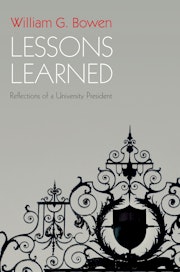
An insider's account of higher education from a legendary university leader
-
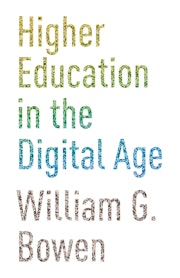
How online learning could help control the exploding cost of higher education
-
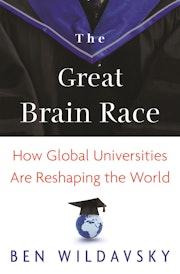
How global competition for the brightest minds is changing higher education
-
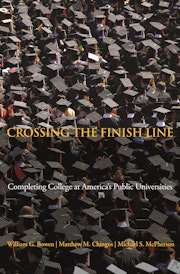
Why so many of America's public university students are not graduating—and what to do about it
-
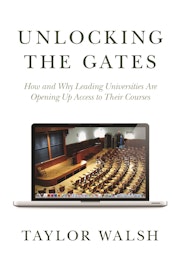
How elite universities are entering the world of online education
-
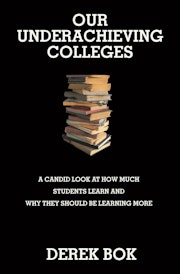
Drawing on a large body of empirical evidence, former Harvard President Derek Bok examines how much progress college students actually make toward widely accepted goals of undergraduate education. His conclusions are sobering. Although...
-
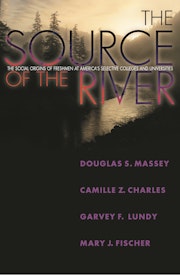
African Americans and Latinos earn lower grades and drop out of college more often than whites or Asians. Yet thirty years after deliberate minority recruitment efforts began, we still don't know why. In The Shape of the River, William...
-
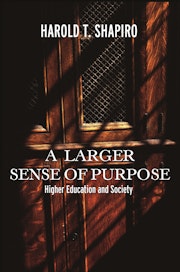
Universities were once largely insular institutions whose purview extended no further than the campus gates. Not anymore. Today's universities have evolved into multifaceted organizations with complex connections to government...
-
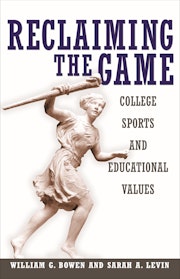
In Reclaiming the Game, William Bowen and Sarah Levin disentangle the admissions and academic experiences of recruited athletes, walk-on athletes, and other students. In a field overwhelmed by reliance on anecdotes, the factual findings...
-
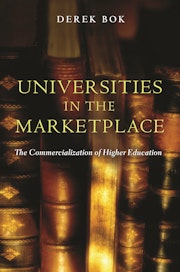
Is everything in a university for sale if the price is right? In this book, one of America's leading educators cautions that the answer is all too often "yes." Taking the first comprehensive look at the growing commercialization of our...
-
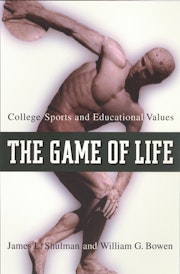
The President of Williams College faces a firestorm for not allowing the women's lacrosse team to postpone exams to attend the playoffs. The University of Michigan loses $2.8 million on athletics despite averaging 110,000 fans at each...
-
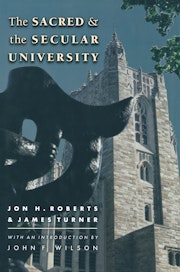
American higher education was transformed between the end of the Civil War and the beginning of World War I. During this period, U.S. colleges underwent fundamental changes--changes that helped to create the modern university we know...
-
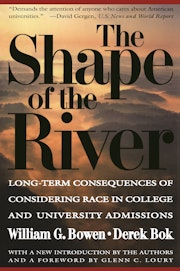
The landmark New York Times bestseller that demonstrates the benefits of race-conscious admissions in higher education
-
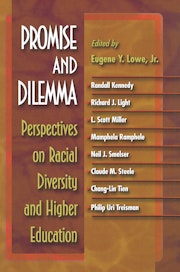
Issues of diversity and affirmative action have turned elite higher education in the United States into contested terrain. Rights revolutions in the country have raised hopes that have proved difficult to fulfill. Most particularly...
-
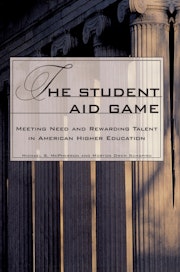
Student aid in higher education has recently become a hot-button issue. Parents trying to pay for their children's education, college administrators competing for students, and even President Bill Clinton, whose recently proposed tax...
-
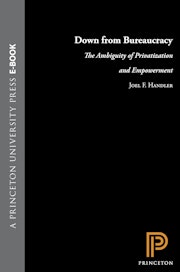
Throughout the world, politicians are dismantling state enterprises and heaping praise on private markets, while in the United States a new rhetoric of "citizen empowerment" links a widespread distrust of government to decentralization...
-
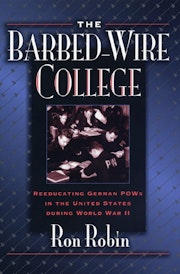
From Stalag 17 to The Manchurian Candidate, the American media have long been fascinated with stories of American prisoners of war. But few Americans are aware that enemy prisoners of war were incarcerated on our own soil during World...